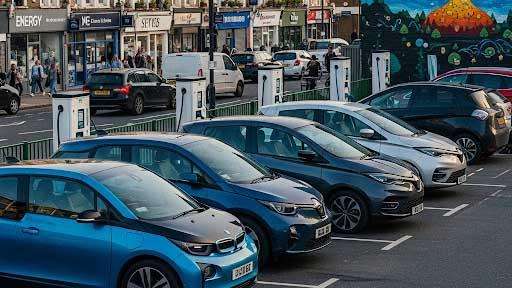In a significant move set to electrify England's transport landscape, new regulations came into effect today, Thursday, removing the need for planning permission to install electric vehicle (EV) chargepoints on private residential driveways, at workplaces, and on public streets. This sweeping deregulation, announced by the Department for Transport, aims to dismantle the bureaucratic barriers that have long stalled the expansion of the UK's EV charging infrastructure.
The impact of this policy shift is expected to be particularly profound in densely populated urban areas like East London, where off-street parking is scarce and the transition to electric vehicles faces unique challenges. For boroughs such as Tower Hamlets, known for its high proportion of residents without dedicated off-street parking, the accelerated deployment of public charging points is a critical step towards cleaner air and a greener future.
Reports have consistently highlighted the cumbersome process of obtaining planning permission for public EV installations, often taking up to nine months. This bottleneck has been a major impediment to encouraging more drivers, especially those reliant on public charging, to make the switch to electric. With the government committed to banning the sale of new petrol and diesel cars and vans from 2030, a robust and accessible charging network is not just desirable, but essential.
While the National Audit Office's December report indicated that the rollout of public EV chargers is generally on track to meet the Department for Transport's estimated minimum requirement of 300,000 by 2030, concerns remain about equitable distribution and the speed of deployment in areas with high demand and limited space. East London, with its diverse housing stock and often congested streets, exemplifies these challenges.
Lilian Greenwood, Minister for the Future of Roads, lauded the new regulations, stating: "We're cutting down on paperwork to power up the EV revolution so that drivers, businesses and those looking to make the switch will have more chargepoints to power from and less red tape to deal with." She reiterated the government's commitment to investing over £2.3 billion to support drivers and the British car industry.
Industry leaders have widely welcomed the announcement. Lewis Gardiner, Operations Director at Osprey Charging Network, called it "a hugely welcome and practical change that will make a real difference on the ground." He emphasized that "Removing the need for planning permission for essential electrical infrastructure like substations across the majority of sites will save months of delays, reduce costs and accelerate the delivery of the rapid charging hubs drivers need."
Jack Cousens, Head of Roads Policy at the AA, echoed the sentiment, stressing that the government must "do all it can" to boost charger numbers. He added that while easing planning regulations is beneficial, "the crucial element is ensuring grid connection in a timely manner. This is especially important in rural locations and areas where there is no dedicated off-street parking."
Rod Dennis, Senior Policy Officer at RAC, also celebrated the move, recognizing that "coaxing more drivers to choose an EV for their next car hinges on removing the obstacles some people face." However, he issued a cautionary note regarding the "relatively high cost of public charging," which he insisted "still needs to be tackled."
For Tower Hamlets, where the council recently took over parking enforcement in-house due to a high volume of complaints, the new rules present an opportunity to strategically expand its charging infrastructure. The borough has already shown commitment to increasing EV charging points, with plans to significantly expand its network. This deregulation could streamline the process for installing crucial on-street chargepoints and even encourage more residents with driveways to install private chargers, alleviating some of the pressure on public parking spaces. However, the underlying challenges of grid capacity and ensuring fair pricing for public charging will remain key considerations for East London as it navigates the path to a fully electric future.








.svg)

_1.jpg)
.jpg)